Vice-Chancellor’s Awards for Impact
The Vice-Chancellor’s Impact Awards were established to recognise and reward those whose research has led to excellent impact beyond academia, whether on the economy, society, culture, public policy or services, health, the environment or quality of life.
Nominations are initially judged by School, with one prize of £1,000 being awarded to the best impact in each School. An external advisor selects the overall best impact nomination from these School winners, and the prize for this Award is increased to £2,000.
Vice-Chancellor’s Impact Awards 2017
The University received 35 nominations (involving 52 named researchers) for the Impact Awards in its second year of running the scheme. Two Schools: School of Arts and Humanities and School of the Biological Sciences, did not submit enough nominations, and thus did not meet the threshold to be considered for an award. BP selected the overall winner and the winners were announced at an awards ceremony on 13 July 2017, hosted by Vice-Chancellor Professor Sir Leszek Borysiewicz. Pictures from the ceremony appear at the bottom of this page. The winning nominations were:
|
Overall winner
School of Physical Sciences
Dr Alexander Patto
NanoPhotonics Centre
|
WaterscopeWaterScope, led by Alexander, is a not-for-profit, impact driven company spun out of research conducted within the Department of Physics. Using an open-source flexure microscope, WaterScope are developing rapid, automated water testing kits and affordable diagnostics to empower developing communities. In parallel, their microscopes are being used for education, to inspire future scientists, and to support local initiatives. “WaterScope is an excellent example of scientific knowledge being successfully applied to address one of the world’s most significant and current challenges. The potential for international and widespread impact will both benefit those in daily need of a fundamental resource and hopefully inspire interest in science and technology to multiply benefits into the future.” |
|
School of Technology
Professor Elroy Dimson
Judge Business School
|
“Active Ownership”: Engaging with investee companies on environmental and social issuesProfessor Elroy Dimson is a Director of Research at the Judge Business School. His research on responsible investment was the first to document the gains from engaging with investee companies on environmental and social issues. He found that alert investors should not limit attention to narrow financial metrics; they should also focus on issues that matter to all stakeholders and to the economy as a whole, including environmental, social and governance (ESG) concerns. By providing evidence to guide ESG strategy, Elroy’s research has had a substantial impact on investment policy and practice. Interestingly, large investors are adopting evidence-based responsible investment policies. |
|
School of Humanities and Social Sciences
Professor Lawrence Sherman, Mr Peter Neyroud, Dr Barak Ariel, Dr Cristobal Weinborn, Miss Eleanor Neyroud
Institute of Criminology
|
Cambridge Crime Harm Index (CCHI)A research team led by Professor Lawrence Sherman in the Institute of Criminology developed the Cambridge Crime Harm Index (CCHI), a tool for creating a single metric for the seriousness of crime associated with any one offender, victim, address, community of prevention strategy, supplementing traditional measures which give all crimes equal weight. The UK Office of National Statistics credits CCHI as the stimulus to institute its own (modified) version of an index from 2017. Numerous police forces use CCHI to target: highest-harm offenders, victims, places, times and days; differences in crime harm per capita differs across communities or within them over time, adding precision to decisions for allocating scarce resources in times of budget cuts. |
|
School of Clinical Medicine
Professor Nicholas Morrell
Department of Medicine
|
From genetics to new treatments in pulmonary arterial hypertensionProfessor Nicholas Morrell’s lab studies the molecular mechanisms underlying pulmonary arterial hypertension (PAH), or severe high blood pressure in the lungs. PAH is a rare disease that affects approx. 1000 people in the UK. The condition usually affects young women and average life expectancy is 3-5 years. Existing treatments improve symptoms but have little impact on survival. Nicholas has introduced routine genetic testing in PAH, and found that 25% of patients have mutations in the bone morphogenetic protein type II receptor (BMPR2), associated with more severe disease and worse survival. Based on the genetic findings, his research identified new ways to treat the disease. The most promising of these is being commercialised through a university spin-out biotech company. |
The 2017 Impact Awards were held in partnership with the Public Engagement with Research Awards. The photography is credited to Jacqueline Garget.
For more information about the Impact Awards, please contact Stephanie Swain at stephanie.swain@admin.cam.ac.uk or 01223 (7)64987.
Pictures from the ceremony
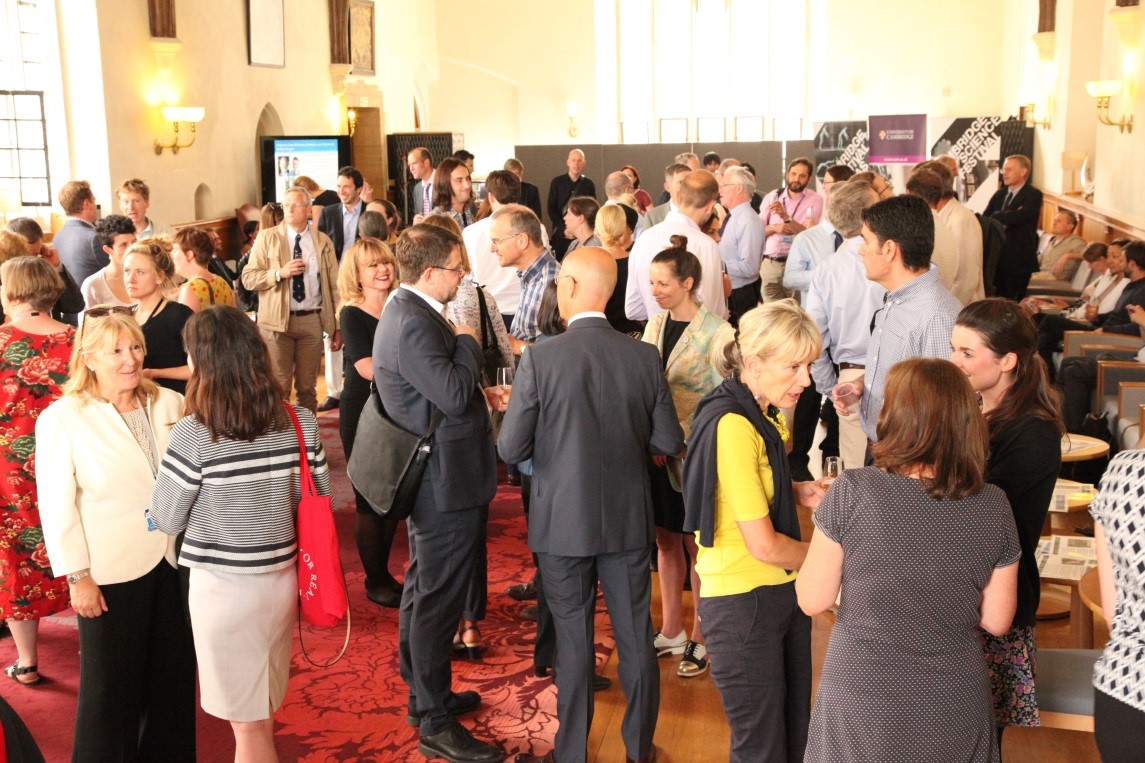
The Vice-Chancellor’s Impact Awards Ceremony 2017, Combination Room
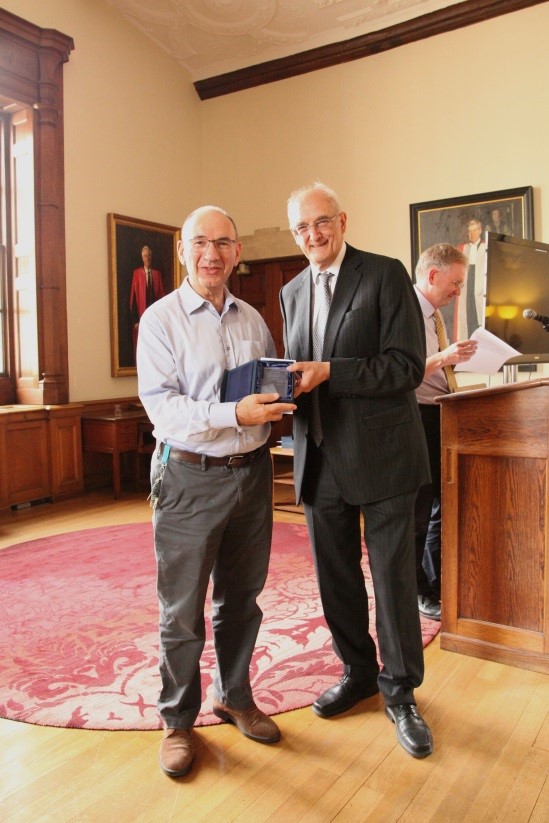
Professor Elroy Dimson, School of Technology
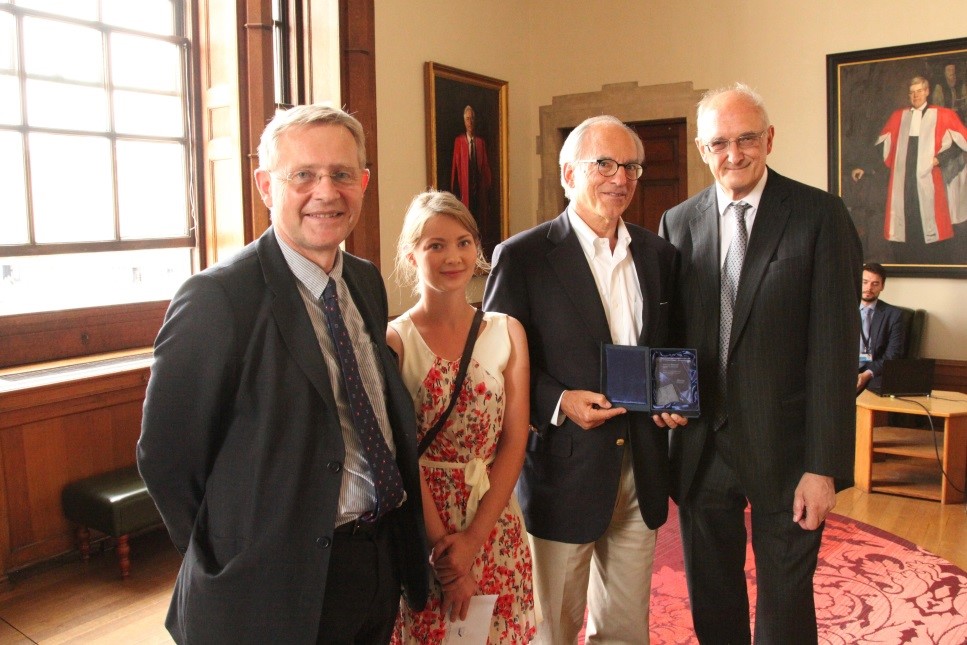
Peter Neyroud, Eleanor Neyroud, Professor Lawrence Sherman, School of Humanities and Social Sciences (in absentia: Dr Cristobal Weinborn, Dr Barak Ariel)
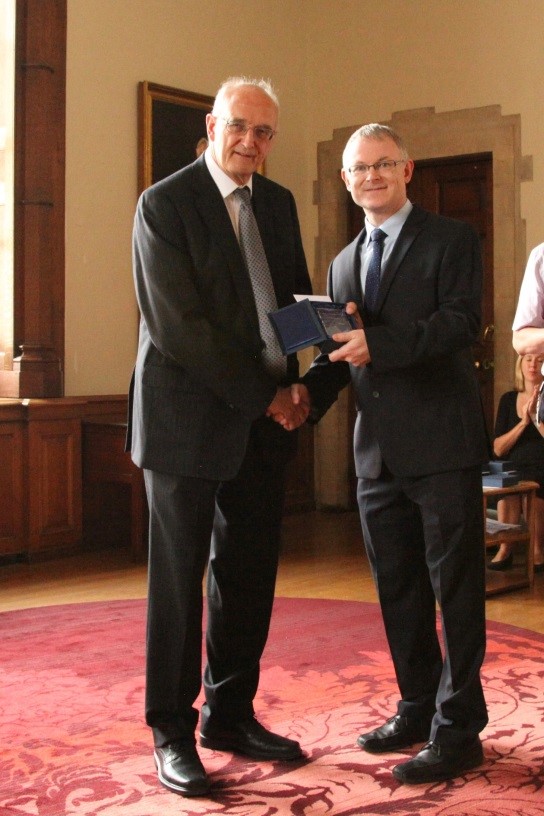
Dr Paul Upton, School of Clinical Medicine (in absentia: Professor Nicholas Morrell)
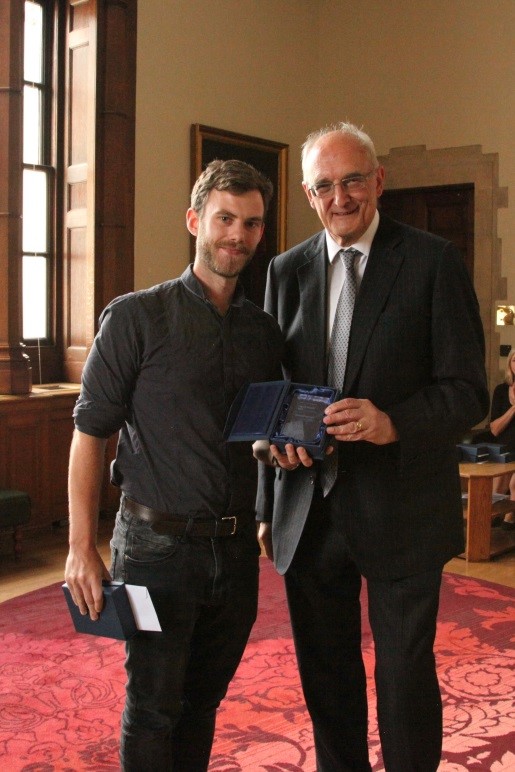
Dr Alexander Patto, School of Physical Sciences
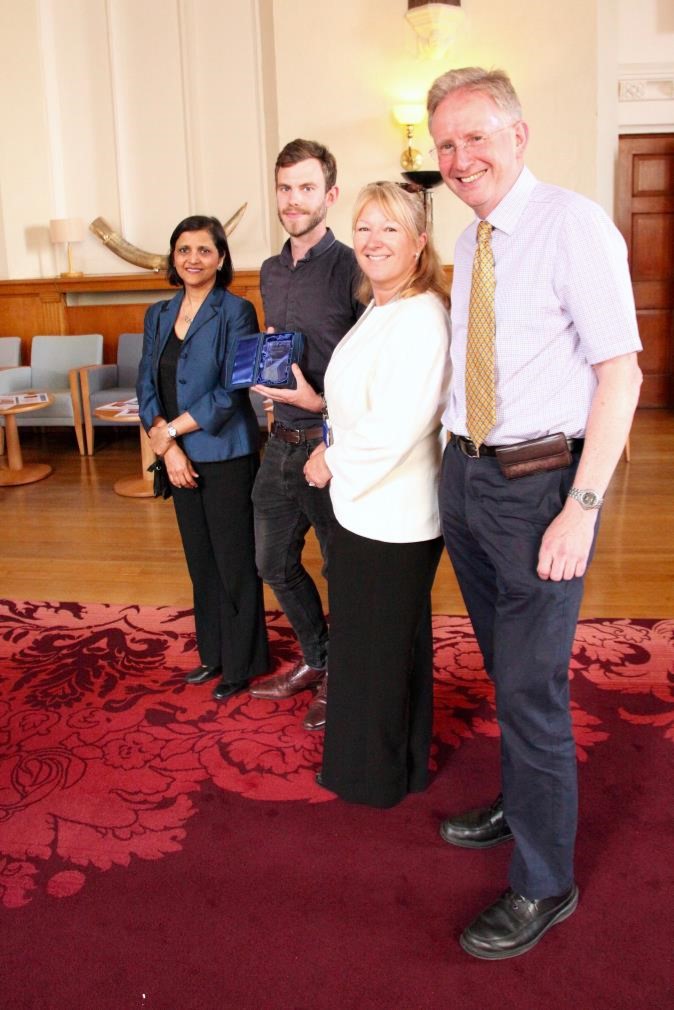
Dr Nita Forouhi (Impact Award Overall Winner 2016), Dr Alexander Patto (Impact Award Overall Winner 2017), Anna-Marie Greenaway (BP Director of International University Relations) and Professor Chris Abell (Pro-Vice-Chancellor for Research)
